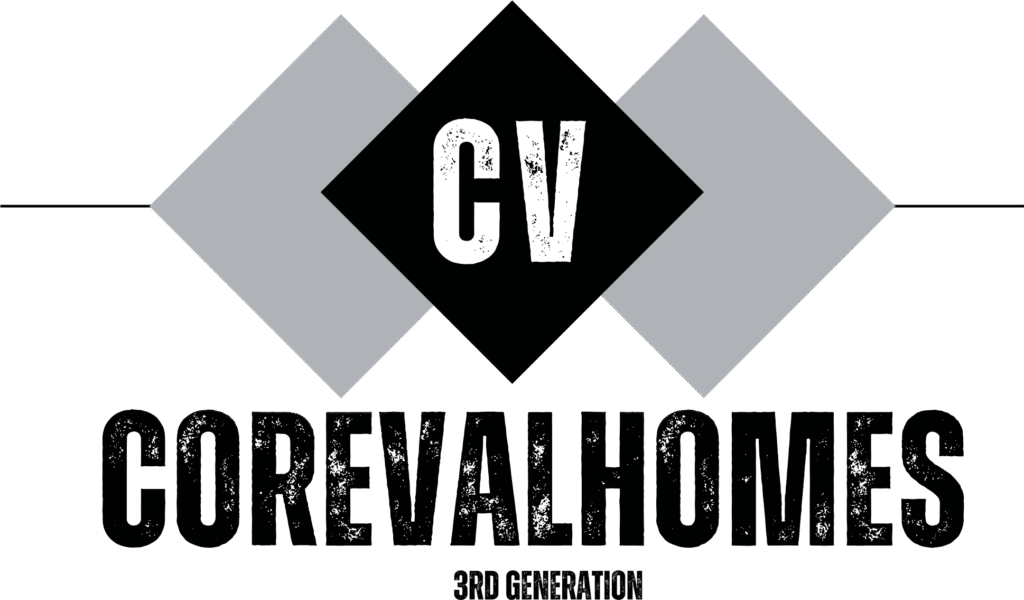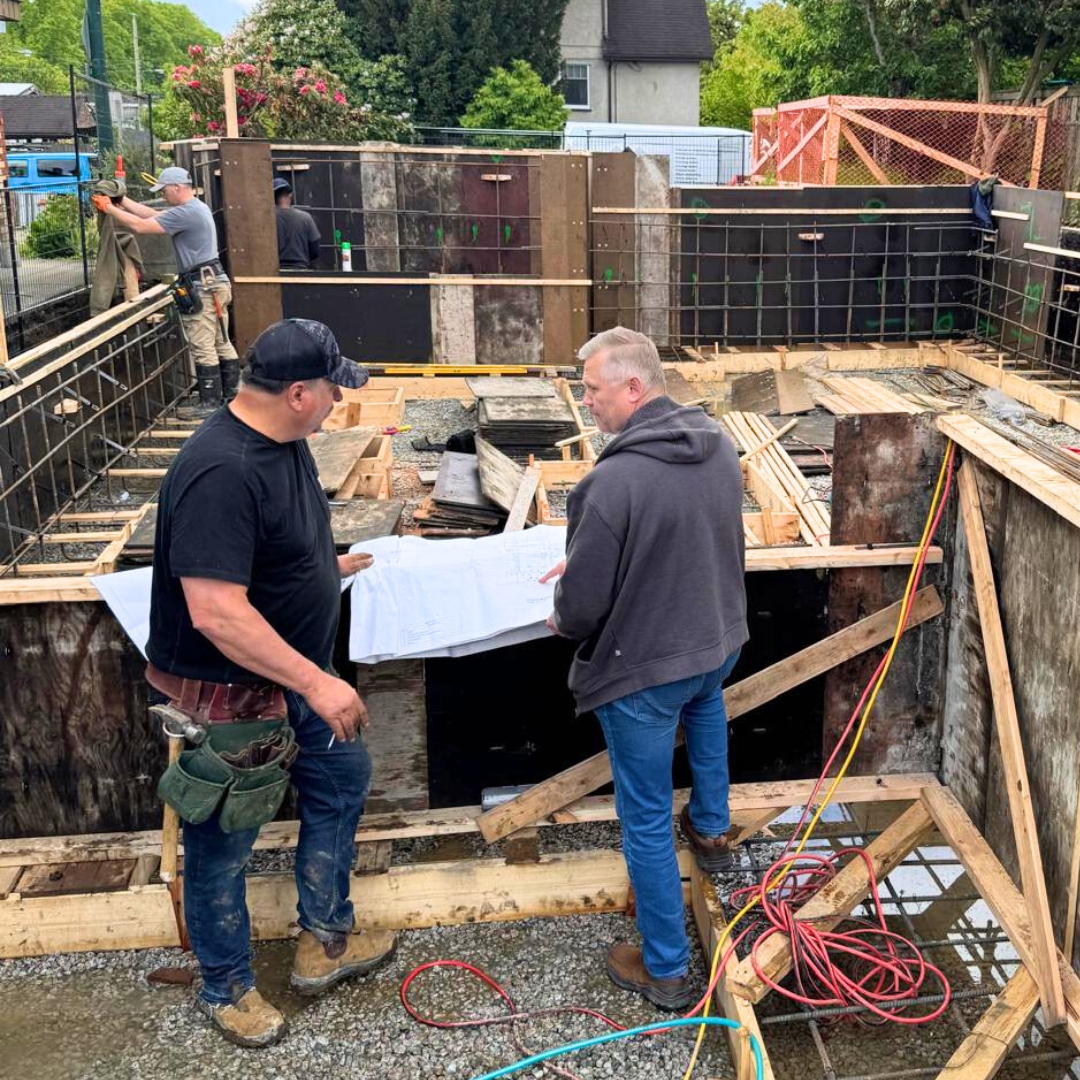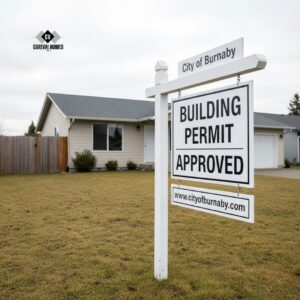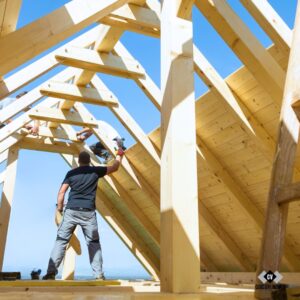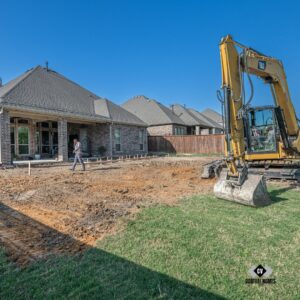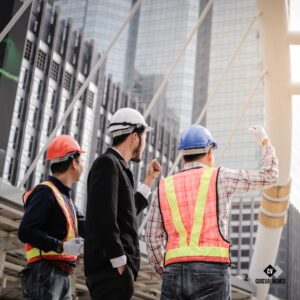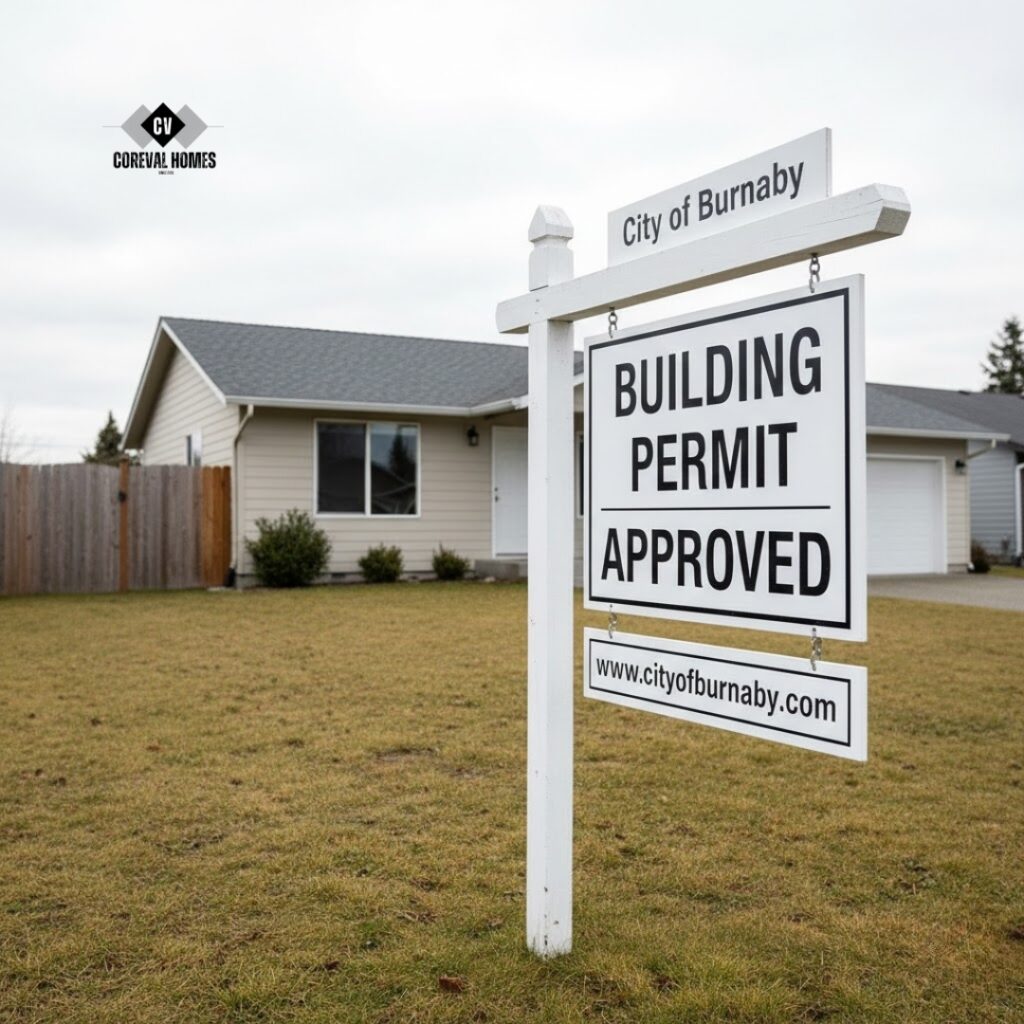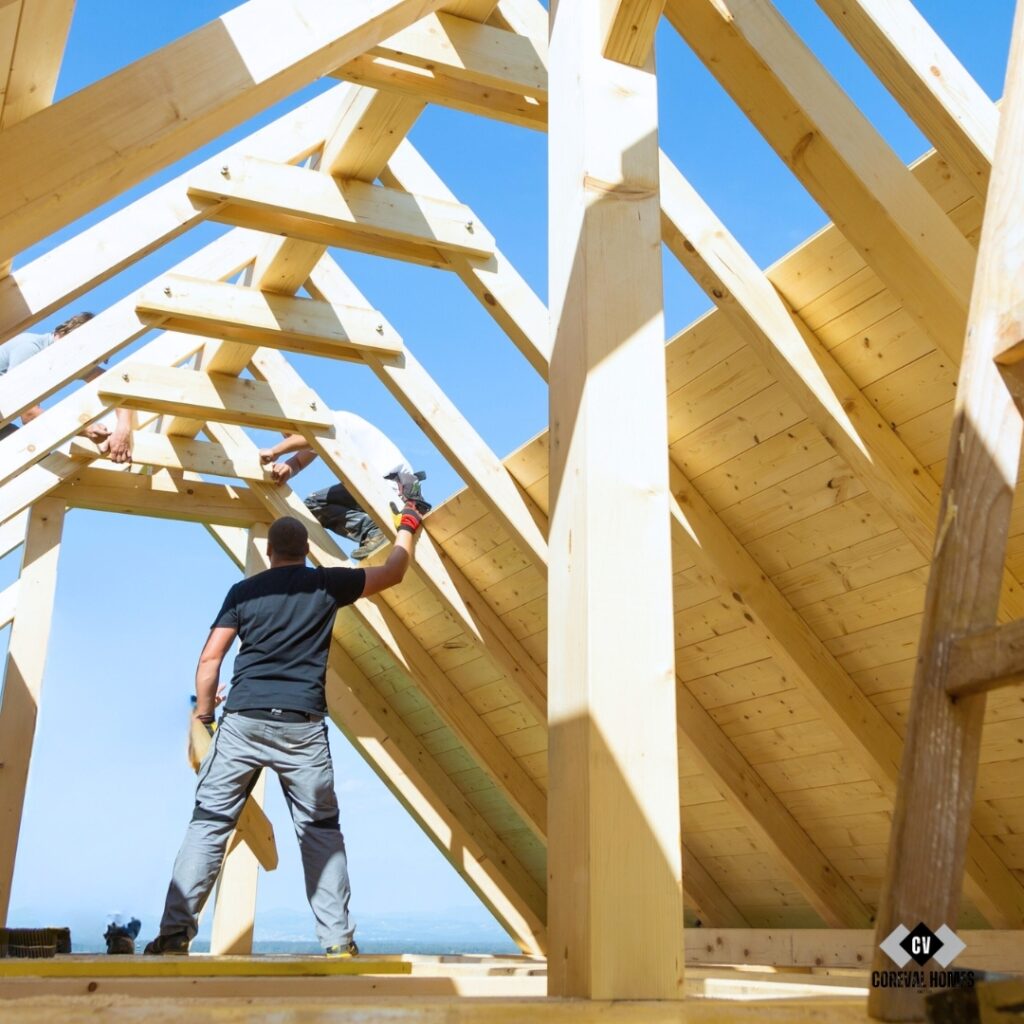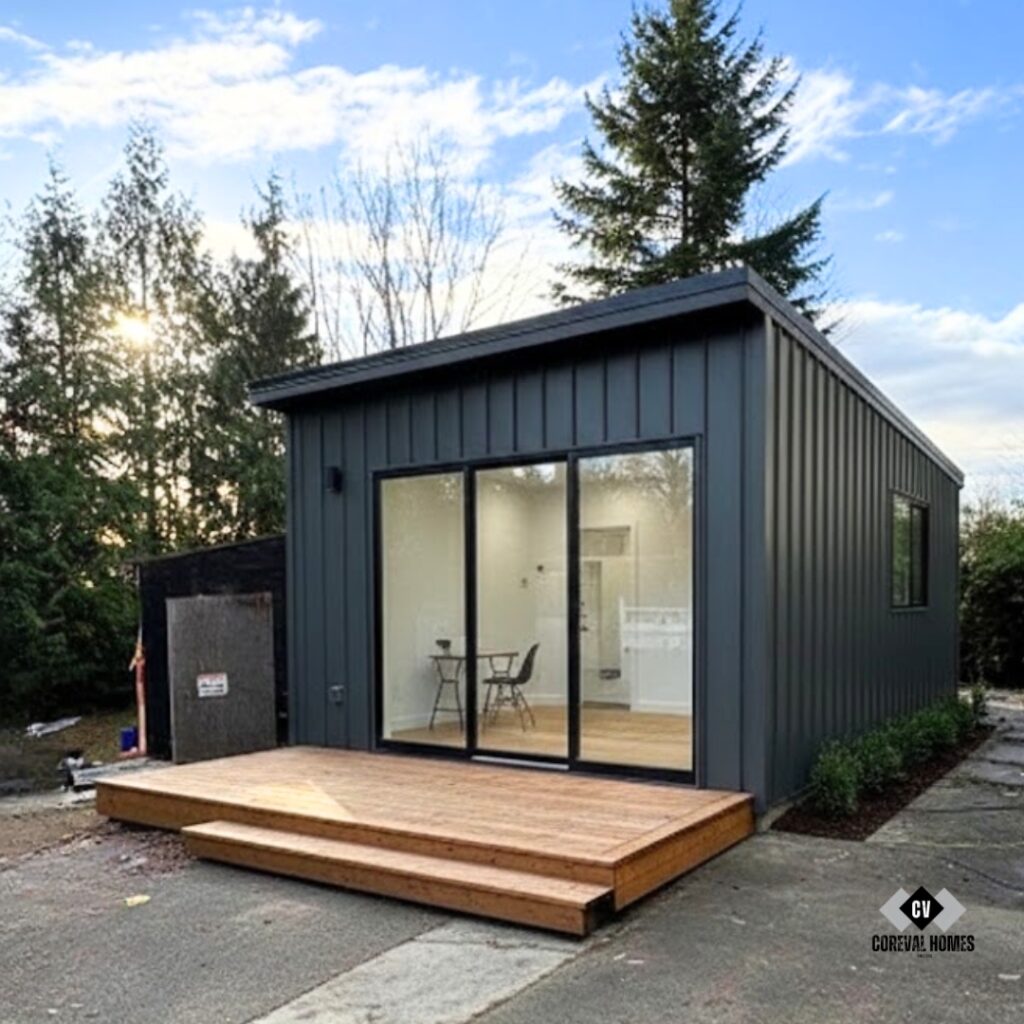Land sales in Metro Vancouver increased by 17% in 2024, driven by high demand for residential and mixed-use sites. With demand for well-located land at an all-time high and the region’s population projected to surpass 3 million by 2050, understanding the intricacies of land development is essential for investors, builders, and policymakers alike.
CoreVal Homes, a leader in sustainable land development, leverages three decades of local expertise to navigate this complex landscape. Here’s how the industry is evolving—and how to stay ahead.
Stages of Land Development Projects
1. Site Selection and Feasibility
Land development begins with identifying parcels that align with zoning, access, and market demand. In Vancouver, strategic location is key: proximity to transit, amenities, and employment hubs can significantly increase land value. Feasibility studies assess site constraints, market trends, and potential returns. According to the Vancouver Economic Commission, well-situated land can appreciate by 5–7% annually, outperforming many other Canadian markets.
2. Due Diligence and Acquisition
Due diligence involves environmental reviews, title searches, and infrastructure assessments. Developers must confirm that land is free of encumbrances and suitable for intended use. In 2024, Metro Vancouver saw a 17% increase in land transactions, with investors prioritizing parcels that offer flexibility for residential, commercial, or mixed-use development.
3. Planning and Design
This phase includes conceptual layouts, density analysis, and integration with existing urban fabric. Vancouver’s Zoning and Development By-law dictates allowable uses, setbacks, and Floor Space Ratio (FSR). For example, a 10,000 sq. ft. lot with a 2.5 FSR permits up to 25,000 sq. ft. of buildable area. Early design must also consider view corridors, shadowing, and community context.
4. Permitting and Approvals
Navigating the regulatory environment is one of the most complex stages. Developers must secure development permits, rezoning (if required), and building permits. Public consultation is mandatory for most large-scale projects, often involving multiple rounds of feedback and revision. On average, the permit approval process in Vancouver can take 12–24 months, with delays commonly linked to community opposition or environmental concerns.
5. Servicing and Site Preparation
Before construction, sites must be serviced with utilities—water, sewer, electricity, and telecommunications. Stormwater management is a growing priority, with Metro Vancouver requiring integrated rainwater management plans for new developments. Site preparation may involve demolition, grading, and environmental remediation, especially for brownfield sites.
6. Construction and Delivery
Once permits are in place, construction can proceed. Modular and prefabricated building methods are increasingly popular, reducing build times and minimizing site disruption. In 2024, 28% of new residential units in Greater Vancouver used some form of modular construction, reflecting a shift toward efficiency and sustainability.
Regulatory Hurdles
Zoning and Density Restrictions
Vancouver’s zoning framework is complex, with over 80 distinct zoning districts. Developers must balance maximizing density with compliance. For example, rezoning from RS-1 (single-family) to RM (multi-family) requires extensive public engagement and alignment with citywide housing strategies.
Community Consultation
Public hearings and neighborhood feedback are integral to the approval process. Projects that incorporate community benefits—such as affordable housing units or green spaces—are more likely to gain support and expedite approvals.
Building Code Compliance
All projects must meet building code standards and land developments in BC, which have become increasingly stringent regarding energy efficiency, accessibility, and seismic resilience. The latest code updates require higher insulation values, triple-glazed windows, and advanced air-tightness measures.
Environmental Impact Assessments
Site Remediation
Brownfield redevelopment is a major trend in Metro Vancouver, where industrial vacancy rates are below 1%. Environmental site assessments (ESAs) identify contamination and remediation needs. In 2023, over 40% of new commercial developments in Vancouver involved some level of site remediation.
Sustainable Design
Developers are integrating low-impact development (LID) strategies, such as permeable paving, green roofs, and native landscaping, to manage stormwater and reduce heat island effects. Projects may also be required to meet LEED or Step Code certification, aligning with Vancouver’s goal to be the greenest city in the world.
Emerging Technologies Shaping the Future
Proptech and AI
AI-driven platforms now streamline site selection, feasibility analysis, and permit tracking. These tools can reduce pre-development timelines by up to 40%. Digital twins and 3D modeling enable stakeholders to visualize projects and optimize design before breaking ground.
Modular Construction
Prefabrication and modular construction are revolutionizing delivery timelines. In 2024, modular builds in Vancouver averaged 30% faster completion compared to traditional methods, with reduced waste and improved quality control.
Smart Infrastructure
IoT-enabled systems for energy management, waste reduction, and water conservation are becoming standard in new developments. These technologies support Vancouver’s Climate Emergency Action Plan, which targets a 50% reduction in carbon emissions from new buildings by 2030.
Vancouver Land Development Projects with CoreVal Homes
Navigating land development projects in Vancouver demands comprehensive expertise across zoning regulations, environmental assessments, and cutting-edge construction technologies. Successfully managing these complexities unlocks exceptional opportunities for long-term growth in one of Canada’s most competitive real estate markets.
CoreVal Homes offers a full suite of in-house services—from site acquisition and feasibility analysis to permitting, design, and construction—ensuring seamless project delivery with minimized risk and maximum value. Our integrated approach allows investors and developers to capitalize on Vancouver’s evolving land development landscape efficiently and confidently.
Explore Vancouver’s exclusive homes and strategic land development opportunities with CoreVal Homes. Whether you’re seeking stylish, high-quality residential properties or prime land parcels poised for growth, we provide tailored solutions designed to maximize returns and meet market demands.
Contact CoreVal Homes today to discover how our expertise can help you unlock the full potential of Vancouver’s real estate market. Your next successful investment starts here.
FAQs
1. What in-house services does CoreVal Homes offer for land development projects?
CoreVal Homes provides end-to-end in-house services including site acquisition, feasibility studies, permitting, design, and construction management. This integrated approach streamlines land development projects, reducing delays and ensuring compliance with Vancouver’s complex regulations.
2. How can CoreVal Homes help investors identify high-potential land development opportunities in Vancouver?
With deep local market knowledge and proprietary data analytics, CoreVal Homes actively sources and evaluates strategic land parcels before they hit the MLS, giving investors early access to prime development sites with strong growth potential.
3. What are the typical regulatory challenges faced in Vancouver land development projects?
Common hurdles include zoning restrictions, lengthy permitting processes, and mandatory community consultations. Developers must also comply with environmental impact assessments and increasingly stringent building codes focused on sustainability.
4. How do environmental impact assessments affect land development timelines?
EIAs require detailed studies of soil, water, and biodiversity, often adding several months to project timelines. However, early integration of sustainable design and remediation strategies can mitigate delays and reduce long-term costs.
5. What emerging technologies are transforming land development in Vancouver?
AI-powered site analysis, modular construction, and smart infrastructure systems are accelerating project delivery and improving sustainability outcomes. These technologies help optimize design, reduce waste, and meet the city’s climate action goals.
People Also Ask
1. How does rezoning impact land development projects in Vancouver?
Rezoning can expand allowable uses and increase density but requires public hearings and city approval, which can extend project timelines. Successful rezoning often involves demonstrating community benefits and alignment with city plans.
2. What role does community consultation play in land development?
Community consultation ensures developments reflect local needs and values. Engaging residents early helps address concerns, reduces opposition, and smooths the approval process.
3. Can land development projects incorporate affordable housing requirements?
Yes, Vancouver’s policies encourage or require affordable housing components in many developments, especially those seeking rezoning or density bonuses, to address the city’s housing affordability crisis.
4. What infrastructure considerations are critical in land development?
Developers must ensure adequate water, sewer, electrical, and transportation access. Stormwater management and green infrastructure are increasingly important to meet environmental regulations.
5. How do modular construction methods benefit land development projects?
Modular construction reduces build times by up to 30%, lowers waste, and improves quality control, making it ideal for fast-paced urban developments in Vancouver’s competitive market.
